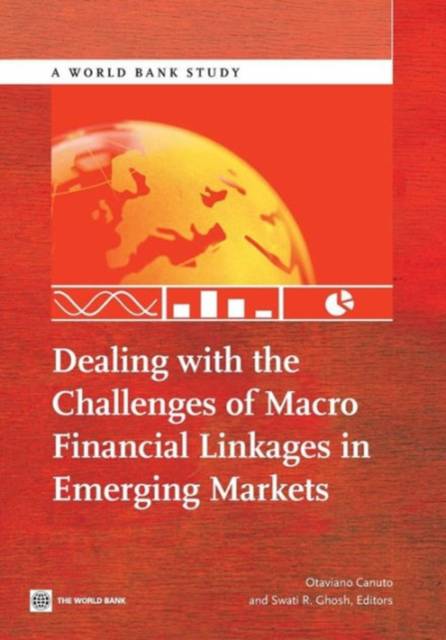
- Afhalen na 1 uur in een winkel met voorraad
- Gratis thuislevering in België vanaf € 30
- Ruim aanbod met 7 miljoen producten
- Afhalen na 1 uur in een winkel met voorraad
- Gratis thuislevering in België vanaf € 30
- Ruim aanbod met 7 miljoen producten
Zoeken
Dealing with the Challenges of Macro Financial Linkages in Emerging Markets
World Bank
€ 27,45
+ 54 punten
Omschrijving
The 2008 financial crisis has highlighted the challenges associated with global financial integration and emphasized the importance of macro financial linkages. Specifi cally it has shown how the real sector (business cycles) can interact with and be amplifi ed by the fi nancial sector, resulting in high procyclicality and a buildup of systemic risk in the fi nancial sector that manifests itself during economic downturns. Although boom-bust cycles in asset prices and credit were observed prior to the recent global crisis, they did not seriously challenge the prevailing paradigm. In the macro arena, the general view was that keeping monetary policy focused on price and output stability would deliver the best feasible outcome, although some proponents argued in favor of 'leaning against the wind.' In the financial sector, prudential policies in most economies focused narrowly on the soundness of individual financial institutions. The policy debate is currently taking place largely, if not exclusively, in the context of the advanced industrial countries. However, emerging markets face different conditions and have key structural features that can have a bearing on the relevance and effi cacy of the measures being discussed. Also important, because they suffered earlier fi nancial crises, many emerging markets have had greater experiences with macro prudential and other policies aimed at ensuring financial stability. As such, emerging markets can offer valuable lessons. The chapters in this volume discuss the challenges of dealing with macro fi nancial linkages and explore the policy toolkit available for dealing with systemic risks with particular reference to emerging markets.
Specificaties
Betrokkenen
- Auteur(s):
- Uitgeverij:
Inhoud
- Aantal bladzijden:
- 304
- Taal:
- Engels
- Reeks:
Eigenschappen
- Productcode (EAN):
- 9781464800023
- Verschijningsdatum:
- 29/10/2013
- Uitvoering:
- Paperback
- Formaat:
- Trade paperback (VS)
- Afmetingen:
- 178 mm x 254 mm
- Gewicht:
- 535 g

Alleen bij Standaard Boekhandel
+ 54 punten op je klantenkaart van Standaard Boekhandel
Beoordelingen
We publiceren alleen reviews die voldoen aan de voorwaarden voor reviews. Bekijk onze voorwaarden voor reviews.








